Introduction
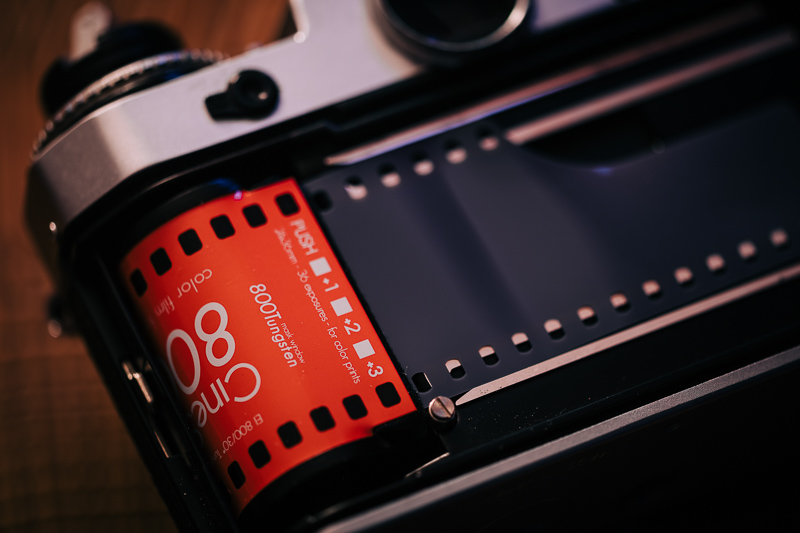
When looking for a higher ISO color film in 2022 – especially one for shooting under artifical light without the need for additional color correction filters – the Cinestill 800T is pretty much without competition. But there are a few things to be aware of, so let’s have a closer look.
Processing and scanning was done at urbanfilmlab in Germany.
The pictures you see in this article are from 2 rolls.
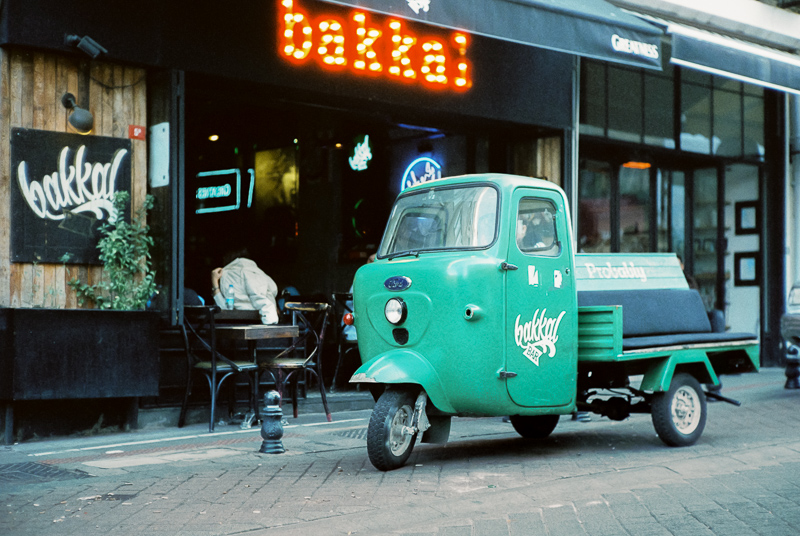
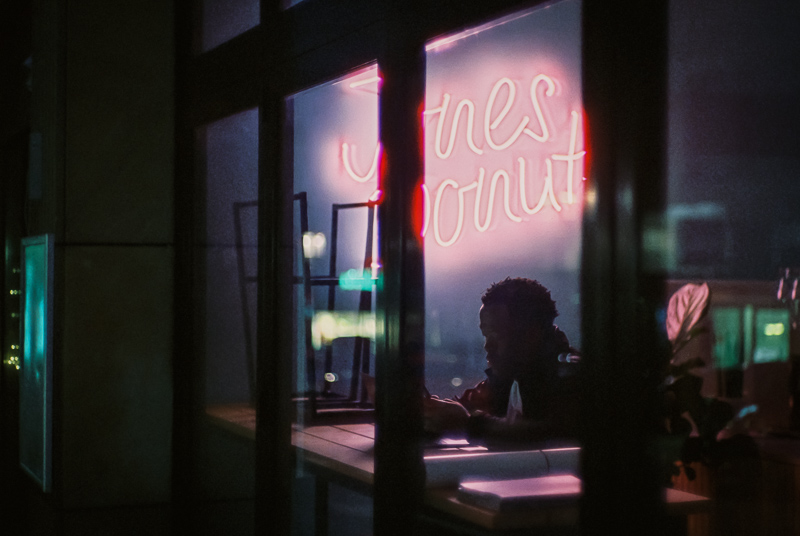

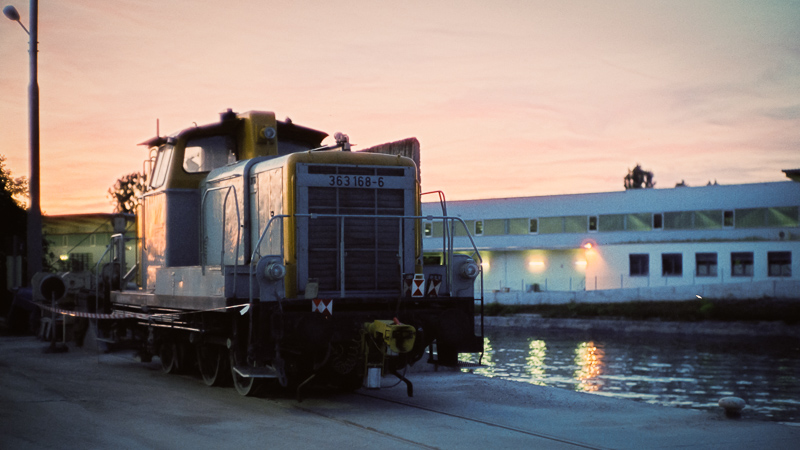
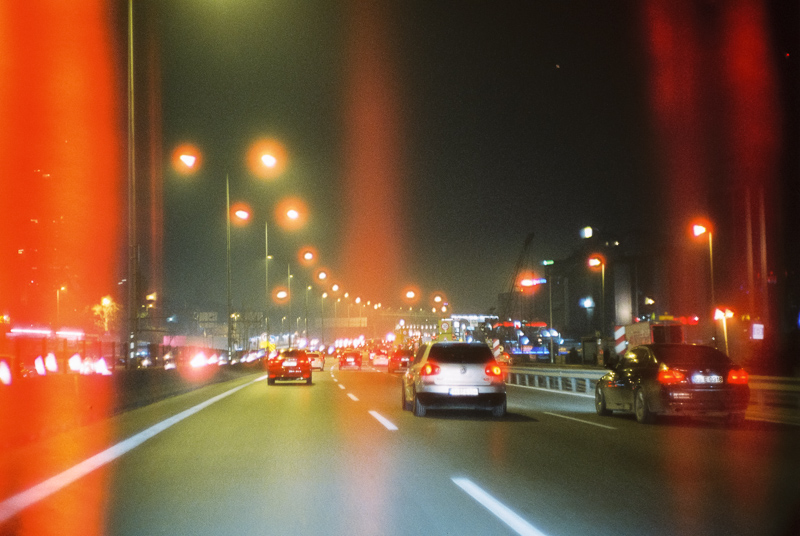
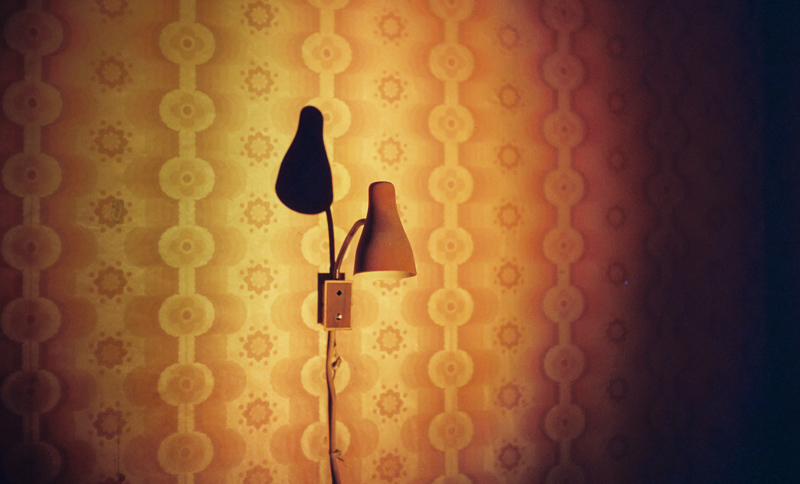
Cinestill 800T
Like the Silbersalz35 500T the Cinestill 800T is actually Kodak Vision 3 500T/5219 cut and repacked for shooting with your 35mm still camera, but there is a major difference.
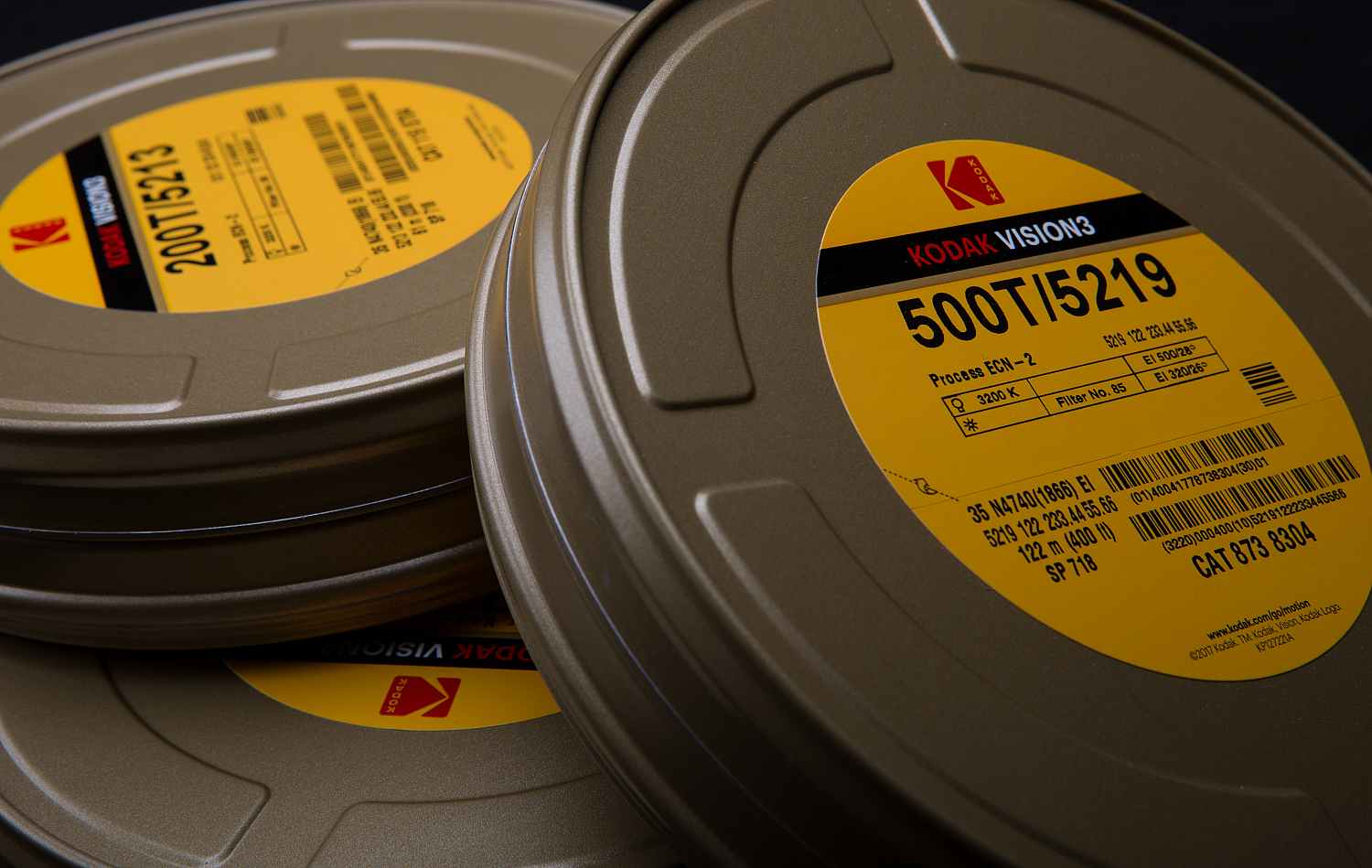
When getting films from the Silbersalz35 guys you are shooting unaltered cinefilm that needs the more complicated ECN-2 process for development.
The Cinestill guys on the other hand removed the remjet layer on the film to make it possible to develope these films with the ordinary C-41 process.
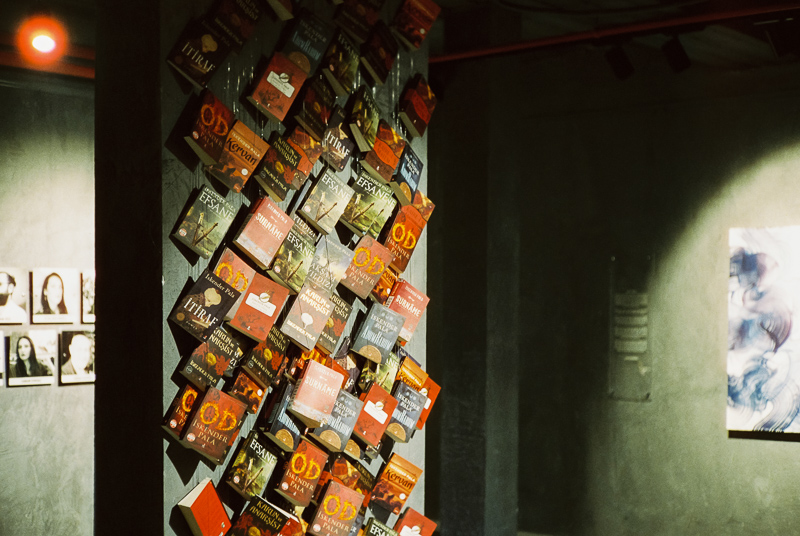
When comparing the Silbersalz35 FAQ to the Cinestill 800T FAQ I noticed a bit of tension: the Silbersalz35 guys say to get the best quality out of this 500T/5219 film stock it needs to be unaltered and you need to develope it with the ECN-2 process and using the C-41 process will noticeably degrade the image quality.
The Cinestill guys on the other hand say removing the remjet makes it “safe” to be developed with the more common C-41 process and that process leads to higher gamma and therefore “improves” the sensitivity up to ISO 800.
But let’s put the marketing talk aside and have the pictures do the talking instead.
Halos
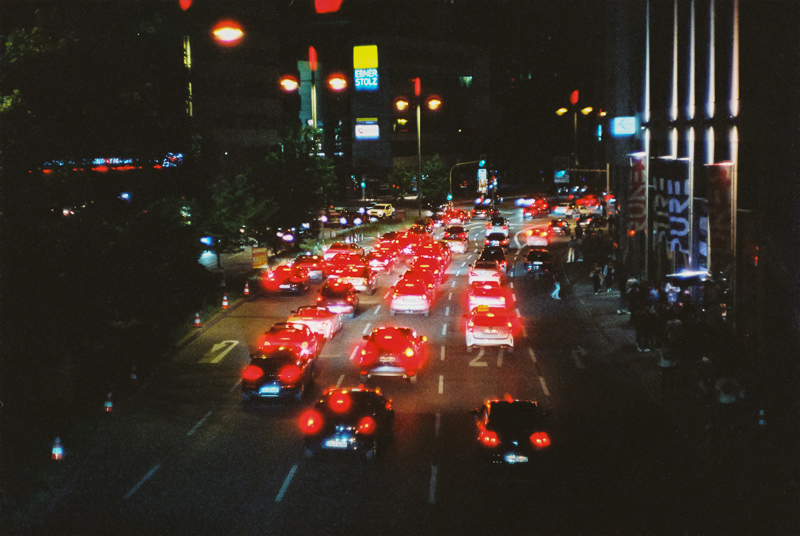
One thing the Cinestill 800T is famous for are red halos around point light sources. Some people love it – I even saw some guys selling photoshop brushes to mimic this – but me? Not so much.
We do live in a time where “different” is often mistaken for “better” though and this is a rather distinct “feature” making the 800T pictures “stand out” which can therefore easily be used in marketing.
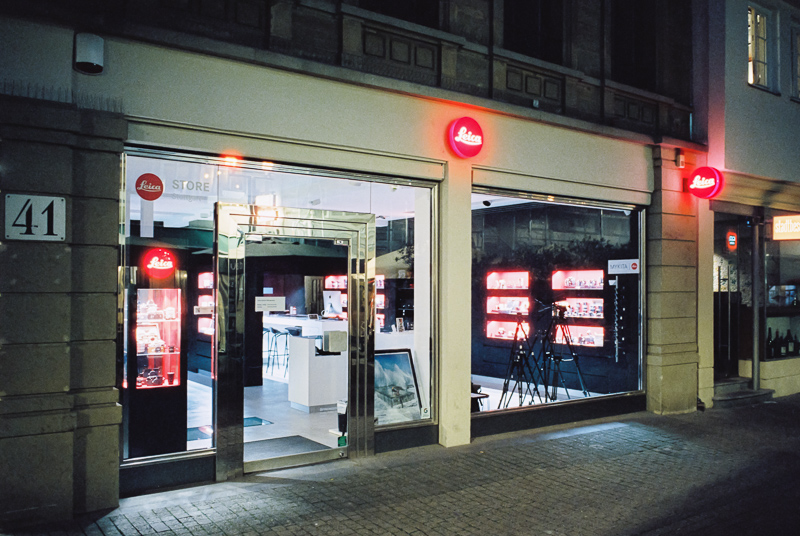
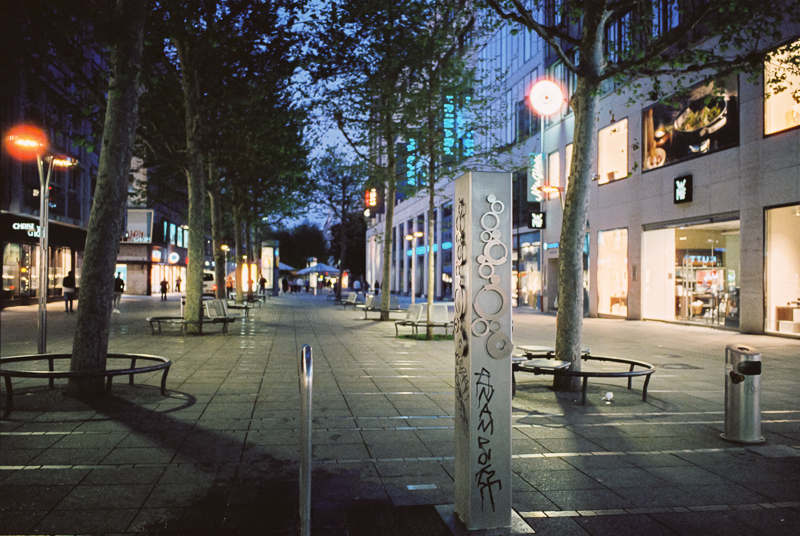
In very high contrast scenes you may even spot these halos in daylight scenarios:
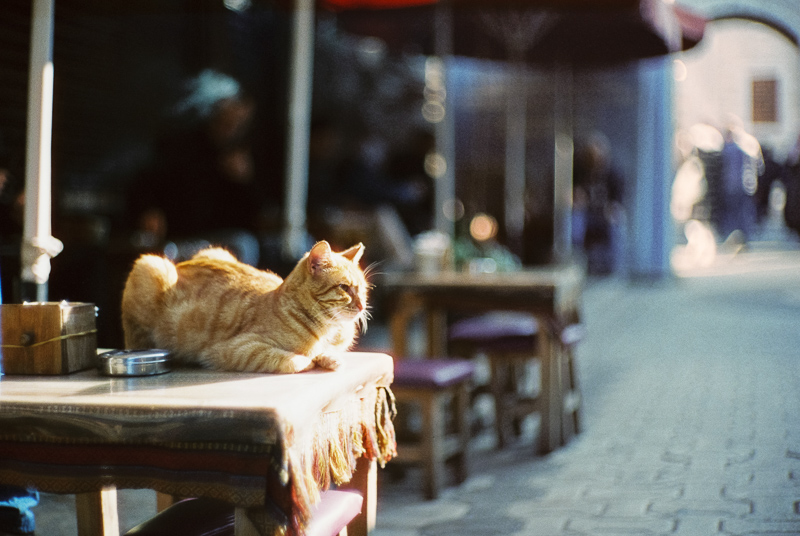
Light leaks
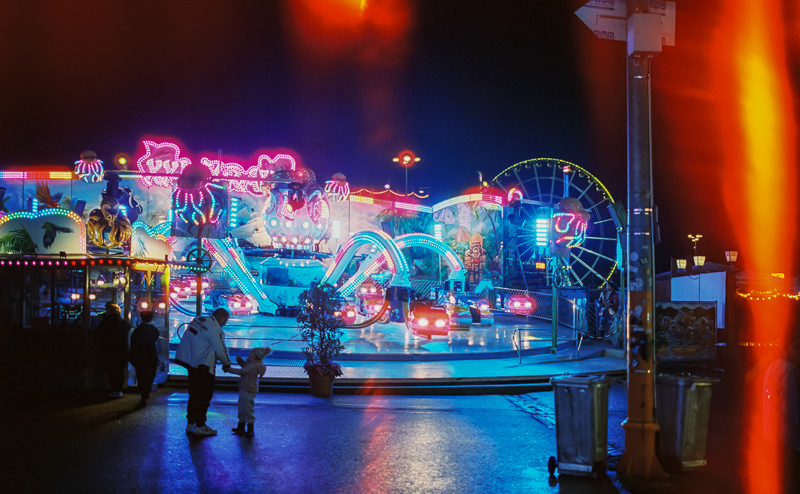
In the FAQ the Cinestill guys say the 800T is more prone to light leaks and static discharge than other films and indeed, on both rolls I shot the first three to four pictures have massive light leaks.
I do wonder if this is actually due to the repacking process though…
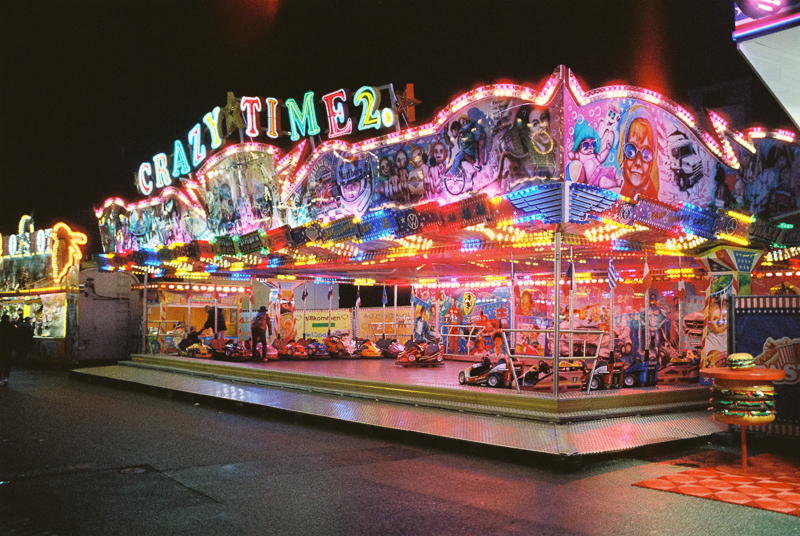
These are the first four pictures from the second roll:
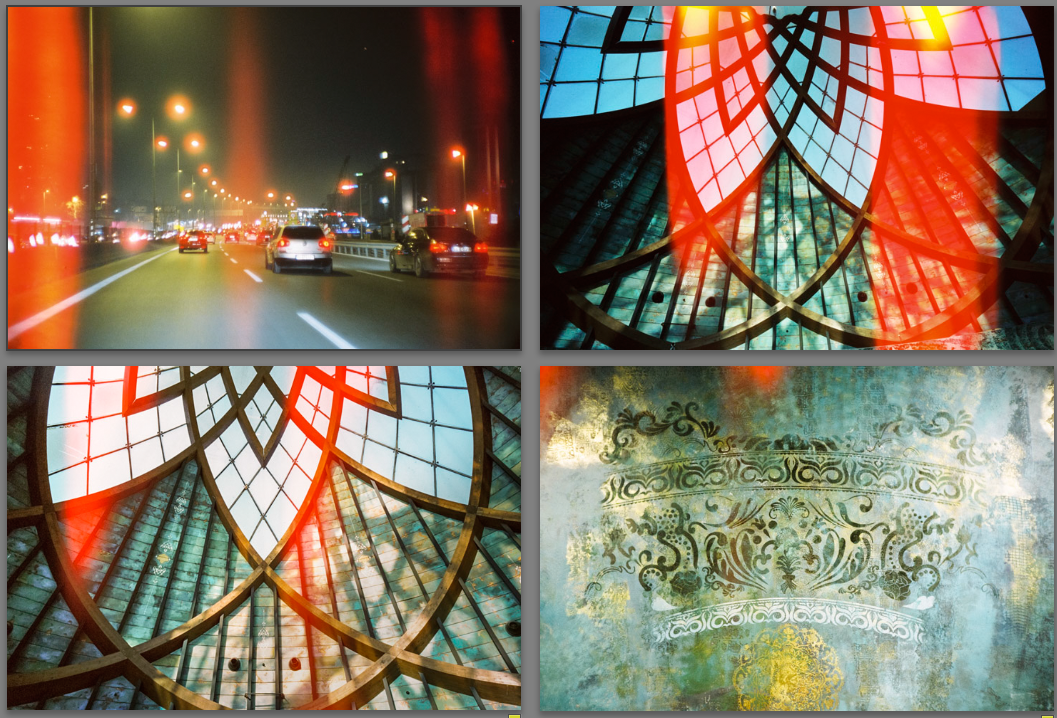
I am really not a fan of these light leaks to say the least.
I only shot two rolls so far and this number is very unlikely to increase, so maybe tell me in the comment section if this is something happening on the first few exposures to you, too.
Compared to Silbersalz35 500T
Now doing side by side comparisons with different films is a bit complicated, especially as I don’t have two analogue cameras and two lenses which are exactly the same.
So we are now comparing the last shot on the Silbersalz35 500T roll to the first (actually 3rd) shot on the Cinestill 800T roll.
Now unfortunately as stated above the first exposures of the 800T roll show massive light leaks which ruins this comparison a bit.
Still, what I see is higher contrast on the Cinestill 800T, but higher dynamic range, tonal range, no halos and way more pleasing colors on the Silbersalz 500T.
It should be noted though: I shot the 800T as ISO800 and the 500T as ISO250 (so both as recommended by the FAQs), and ISO250 and ISO800 are a very notable difference as well.
Impressions

I guess I am with the Silbersalz35 FAQ on this one: removing the remjet and developing the Kodak Vision 3 500T in C-41 leads to severly degraded image quality.
But the thing is this: even when shooting 35mm film I demand a certain amount of image quality. This is not true for everyone. I am sure there are people out there that really “dig” the halos, light leaks as well as the low dynamic and tonal range. It is just not the case for me. Especially not for 15+ bucks a roll.
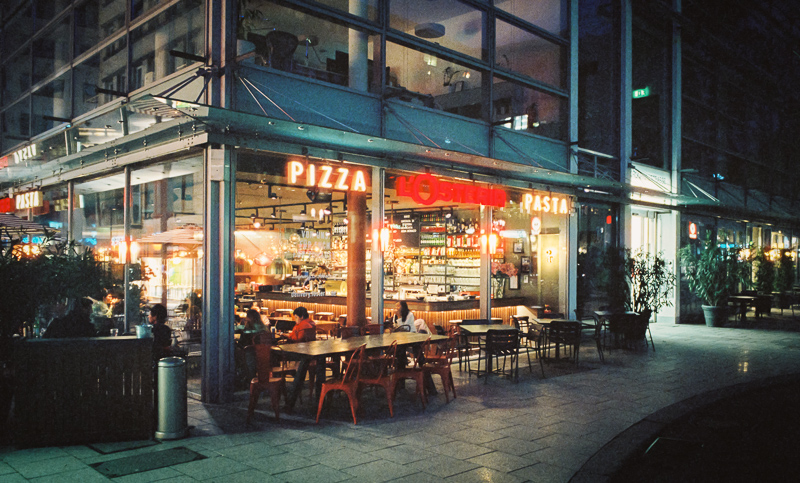
I shot two rolls of Cinestill 800T and based on the results I got I am not really interested in further ones.
More Sample Pictures
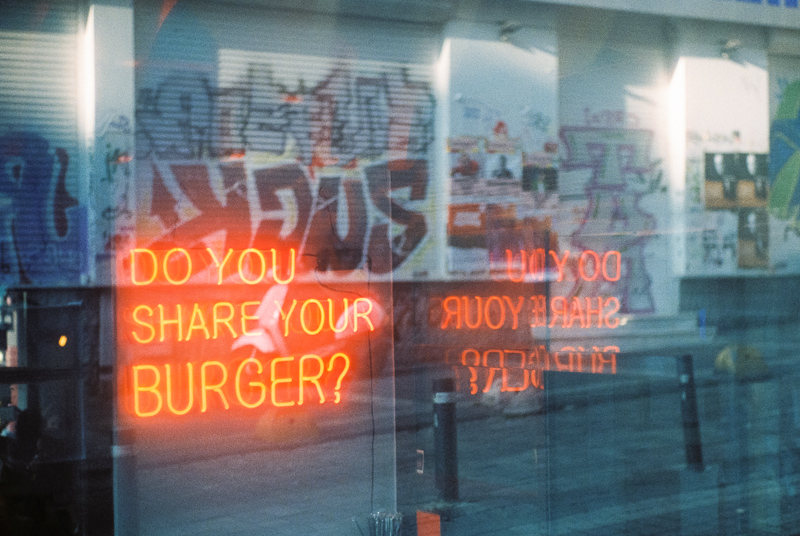
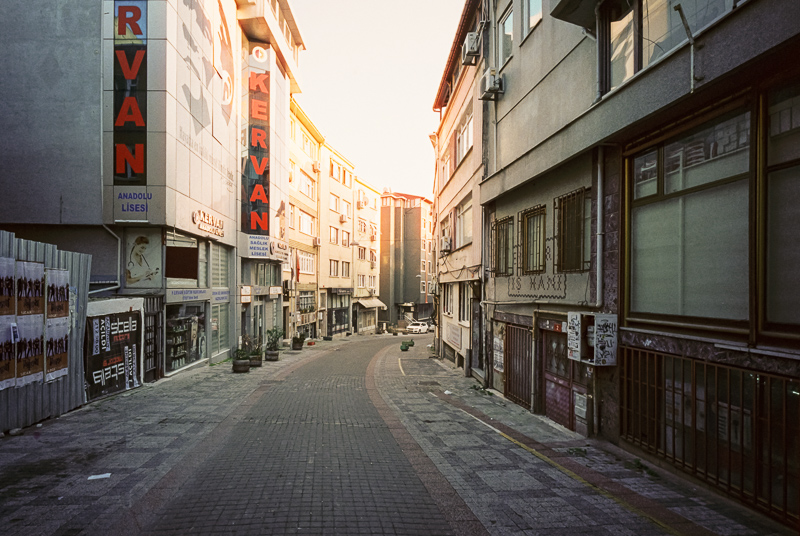
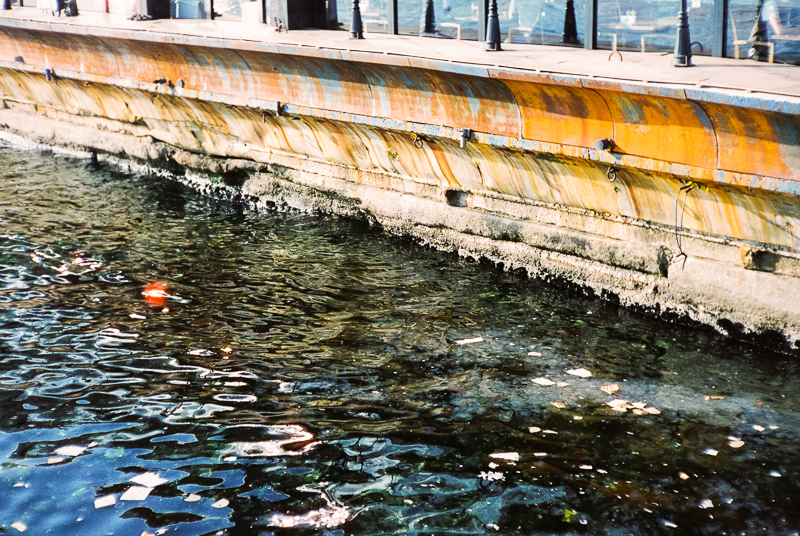
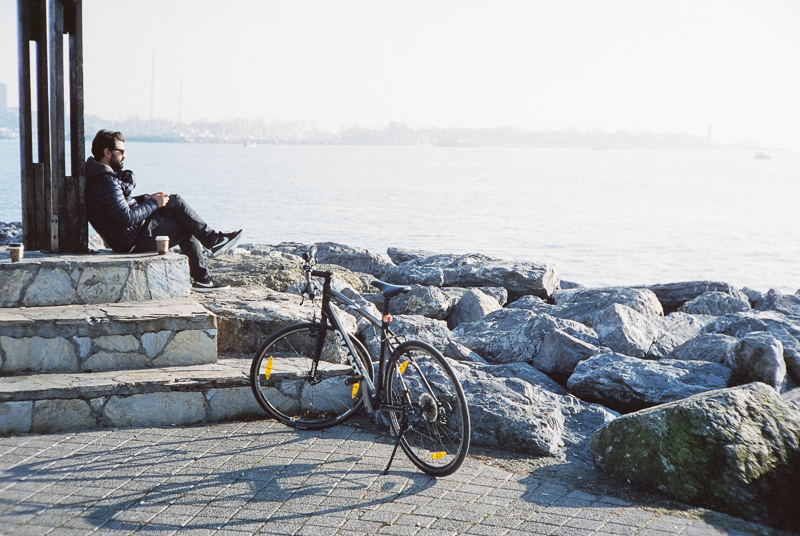
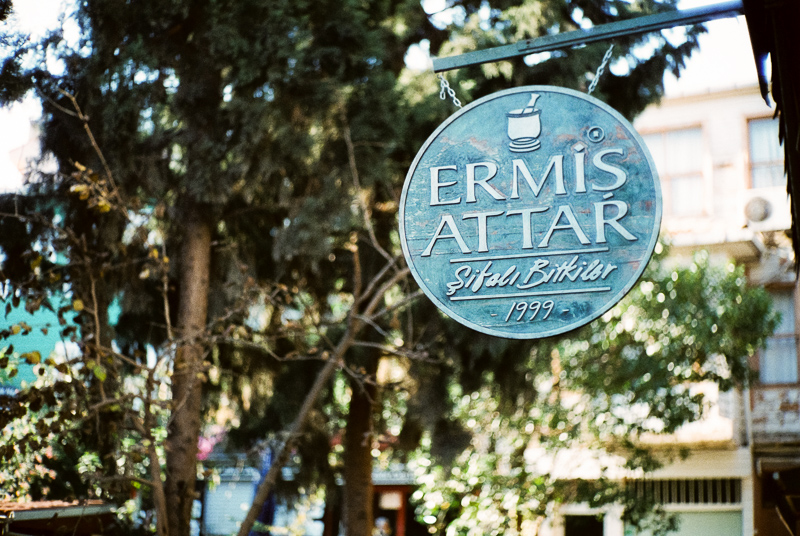
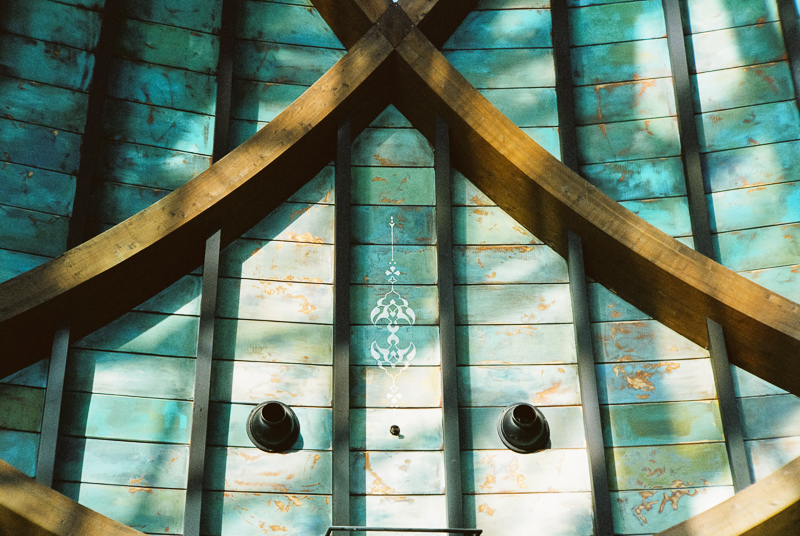
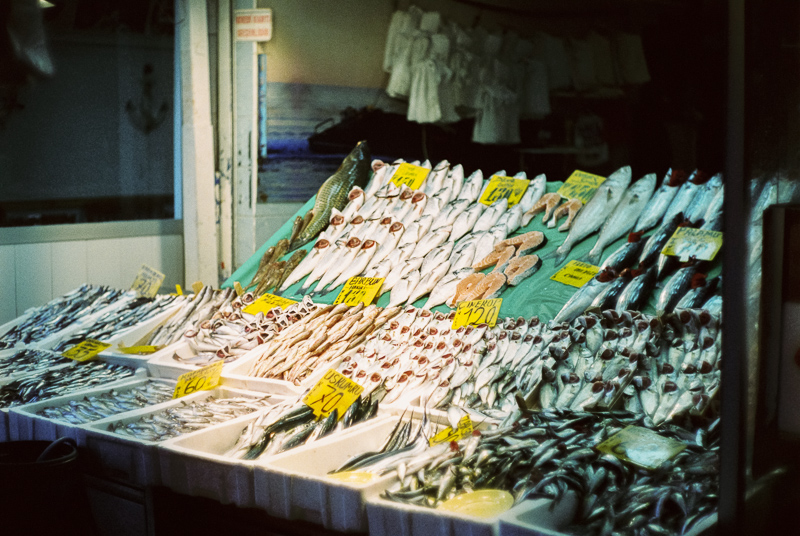
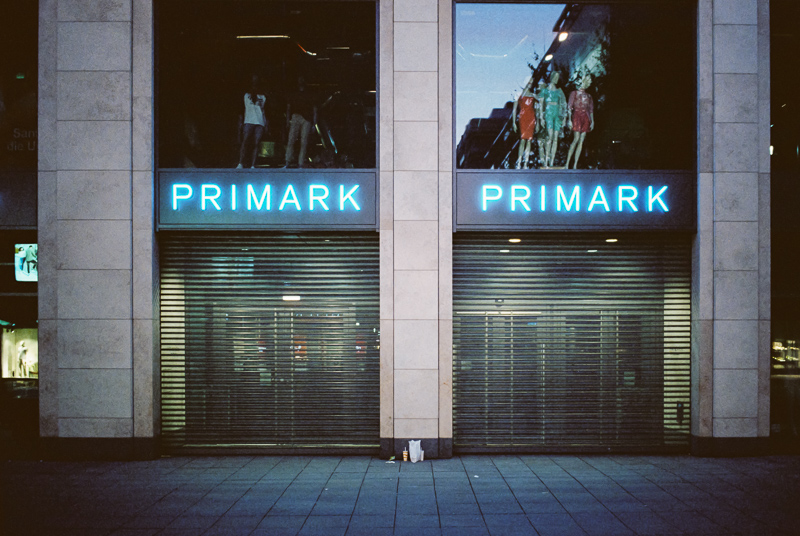
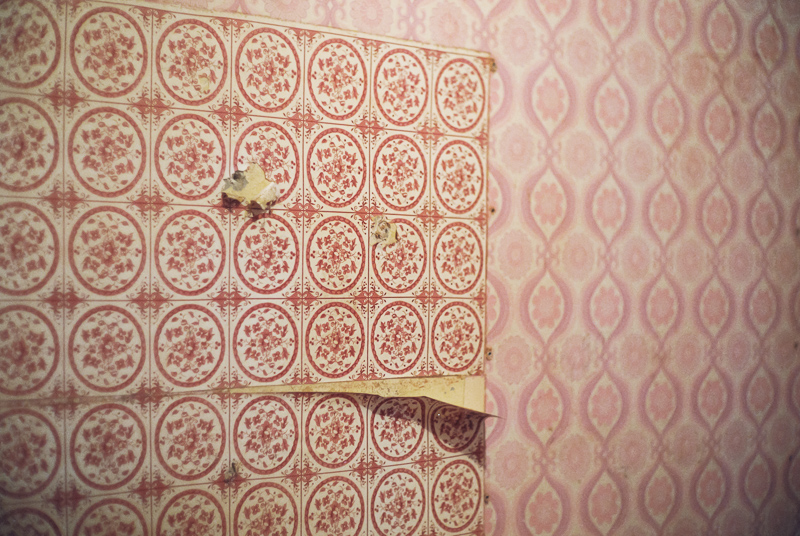
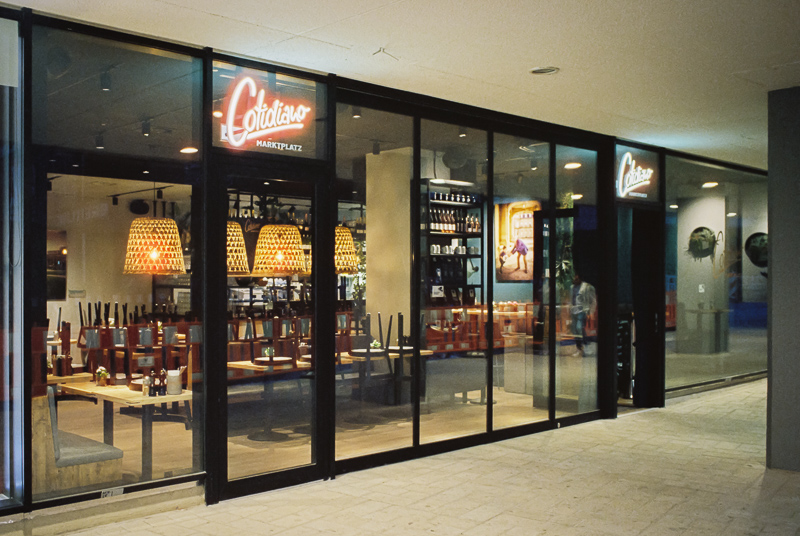
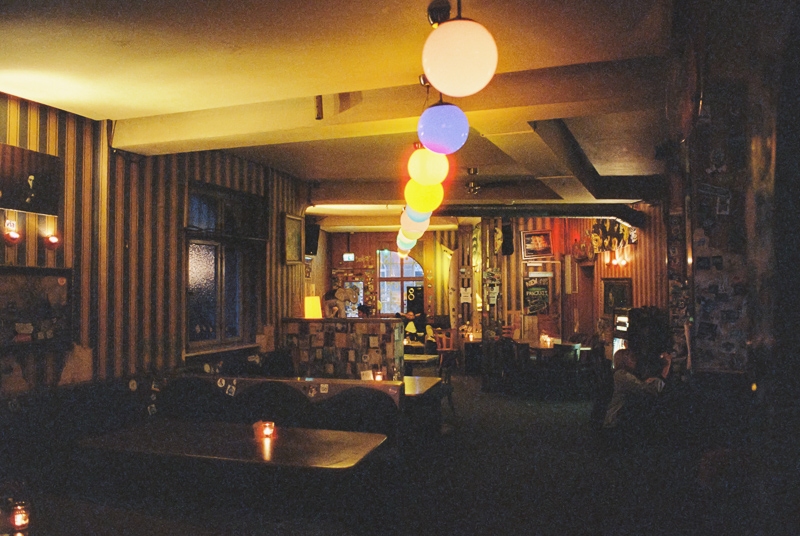
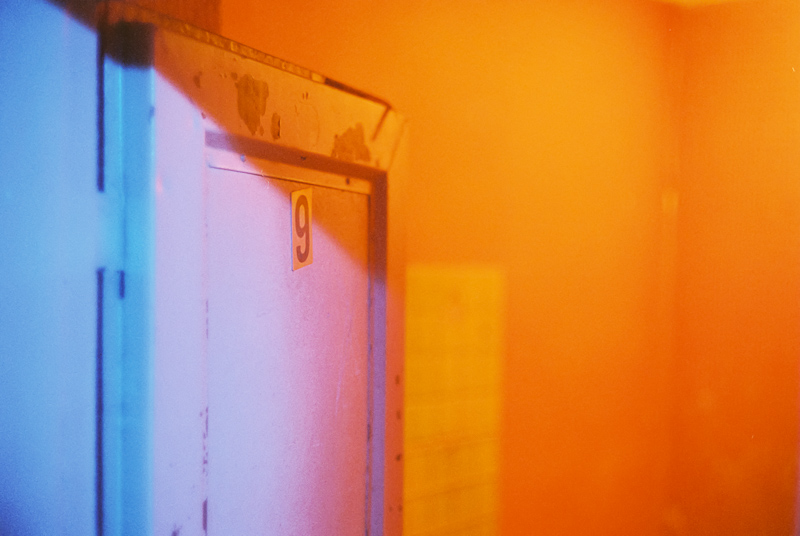

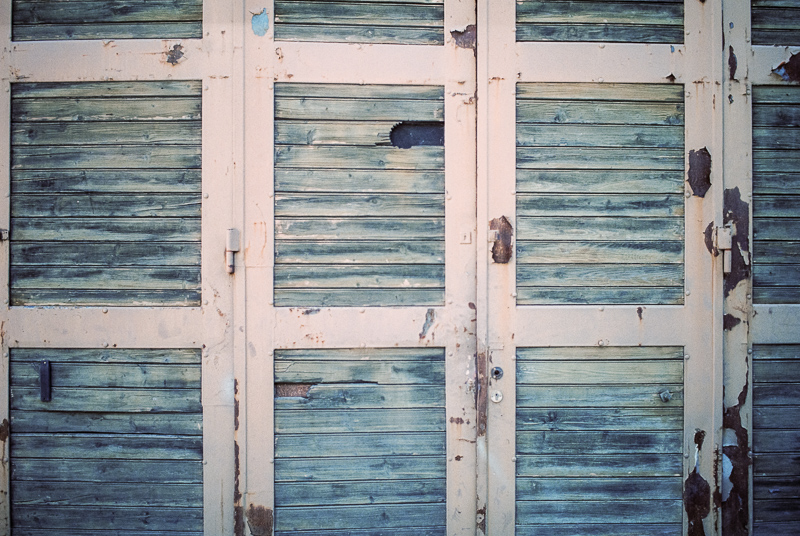

Further Reading
- Analogue Adventures Landing Page
- Review: Voigtländer 28mm 2.0 Ultron Type I
- What makes a picture good?
- Bokeh explained
Support Us
Did you find this article useful or just liked reading it? Treat us to a coffee or a roll of film!
![]()
![]()
![]() via Paypal
via Paypal
Latest posts by BastianK (see all)
- Review: Songraw 50mm 1.2 Moonlit - February 14, 2026
- Review: Nikon AF-S 14-24mm 2.8G – Way ahead of its time - February 11, 2026
- Analogue Adventures – Part 49: Fujifilm Neopan Acros 100 II - February 4, 2026
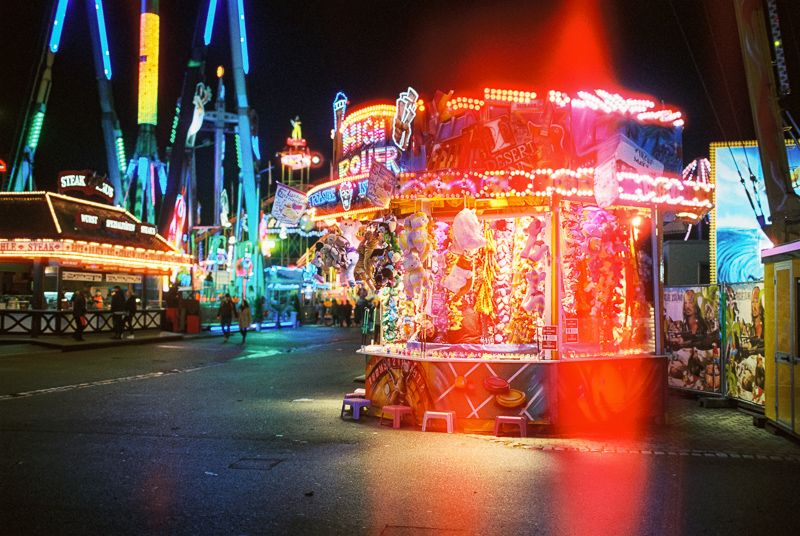
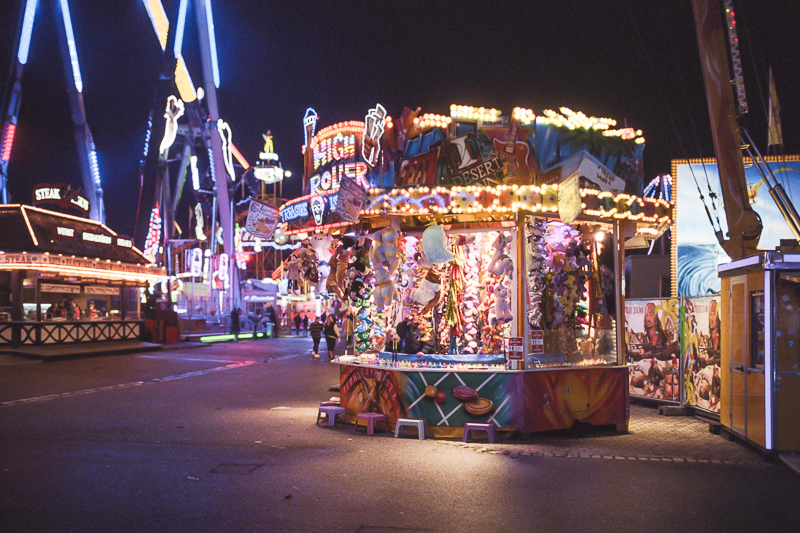
Yes, I think the total package from Silbersalz35 – film, development and scan – is fabulous.
And maybe you already know the
EASTMAN DOUBLE-X Negative Film 5222, should you be interested in analog black and white photography.
Your homepage is just great 👍, I finally had to get rid of it.
Best regards Stefan
Thanks, Stefan!
I already have some more B&W films in the fridge, but B&W is not something I feel like shooting regularly.
Bei den Halos und Light Leaks gebe ich dir Recht, aber die Farbpalette taugt mir total. Bin gespannt auf weitere Teile der Serie. Mit jeder Episode wächst meine Lust, mir auch Analog zuzulegen!
Das ist ja die Idee der Serie, dass man sieht, wie die Ergebnisse mit verschiedenen (noch erhältlichen) Filmen aussehen und man entscheiden kann, was einem gefällt 🙂
i must say i do like this film and the halos it gives.
To me a distinct look is what makes film stand out over digital, since it cannot be easily “faked”.
Great article, I’ve really enjoyed your dive into film. I have mixed feelings on 800T. On one hand, images out of it are so unique and have a certain feel to them that isn’t easy to get with digital, when they come out good it’s excellent. On the other hand, the inconsistent quality of 800T makes me hesitate to use it.
I stopped using 800T because of all the light leaks. I never had them when I first used 800T when it first came out.
Hey, I left a comment about 800t light leaks and how I took steps and haven’t had any. Check it out and see if it helps.
anybody else wanna just be honest here, and say that overall, these photos just aren’t that good? Regardless of film?
Not even a good chef can cook a nice meal when the pot has holes.
Hi Bastian. About the light leaks, (I’ve shot 200+ rolls of 800T). I kept getting them years ago on my first 10 or so rolls, randomly. I decided to get super – SUPER strict about everything on my end (ie, assuming it wasn’t a QC issue).
I replaced all the light seals on my cameras that had them, I started using lens caps during bright daylight or keeping the camera bagged and avoiding direct sunbeams (vampire camera, lol), which is probably overkill. I taped over all film windows with a piece of card under the tape, guaranteeing opaqueness.
The final step was to religiously keep the finished film in the black film case it came with, and to instruct the lab/dev people to keep it in the case until it is developed, so it isn’t a loose film canister in a paper bag. I did this because I noticed they had spot lights over their front desk and the back area was lit like a laboratory.
Since I did all of these things in combination, I have not had a single light leak in approx 200 rolls. None.
I also thought maybe my efforts were pointless and they simply improved their QC, but I did all this around 2018 and I see you are having leaks like I had on much newer rolls.